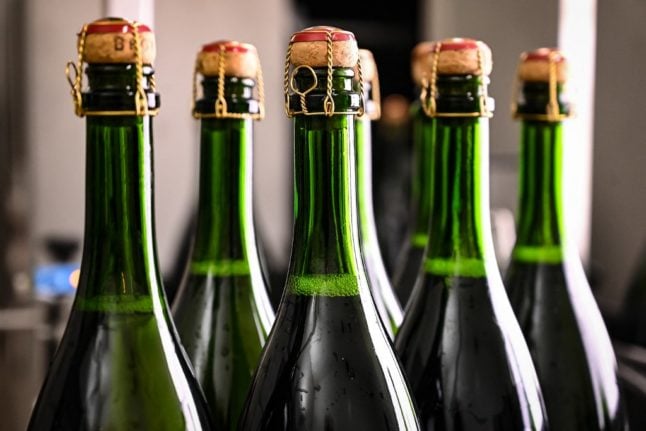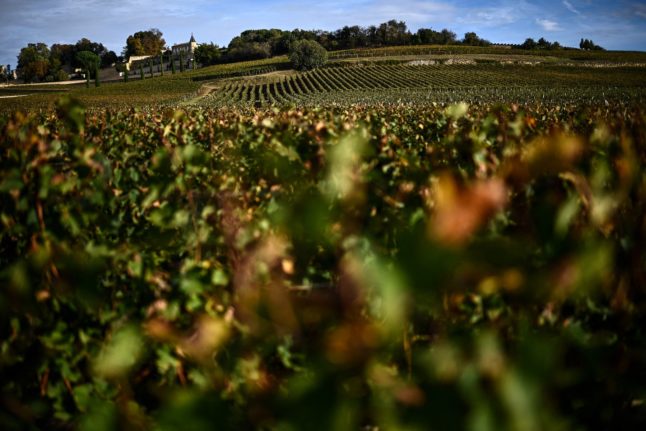Grape harvesting took place in August — earlier than usual.
Both the quality and quantity this year are comparable to vintage years 2002 and 1982, the head of the champagne producers’ union SGV told a press conference on Thursday.
The Champagne region suffered from water shortages like the rest of France but rain “arrived at the right moment during the cycle”, Laurent Panigai told reporters.
This summer was France’s second hottest on record, with average temperatures 2.3C above the norm.
This, coupled with water shortages, caused major problems for livestock farmers.
But the abundant sunshine looks set to deliver a windfall for many wine makers.
Producers in the Bourgogne region are also suggesting this year’s harvest could be comparable in quality to 1959, one of the best years of the last century.
READ MORE: ‘The price of glory’ – Meet the Champagne industry lawyers charged with protecting the brand name
Champagne producers were authorised to pick up to 12,000 kilogrammes of grapes per hectare, the highest level for 15 years.
This is set to enable them to replenish their stocks after a disappointing year in 2021.
The hot weather helped reduce diseases such as mildew. The fungal growth wreaked havoc on the 2021 French wine crop, which was also hit by late frosts.
“Many of the greatest years come at the same time as large (production) volumes,” Panigai said.
Drinkers can expect to sample 2022’s champagne vintage in 2024, as most bottles are kept in cellars for between 15 months and three years.
The champagne industry was hit badly by the Covid-19 pandemic, which shut restaurants across the world and led to most social events being cancelled.
But it rebounded in 2021, posting record sales of €5.5 billion.
France is the world’s second largest wine producer, after Italy.



 Please whitelist us to continue reading.
Please whitelist us to continue reading.
Member comments